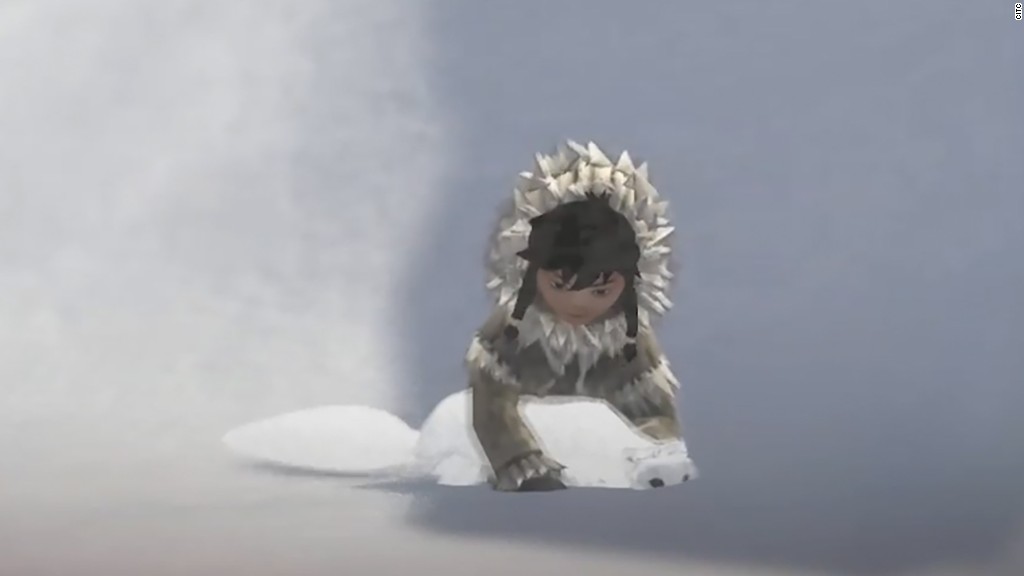
Alaska's indigenous Inupiat people have long used oral and written storytelling to pass down life lessons and values.
Their stories, rooted in folklore and mythology, include tales of overcoming obstacles faced by the community, located in the northern most region of Alaska. Winter is brutal and sunlight disappears from mid-November until the end of January.
But as much as storytelling is integral to Inupiat culture, it risks becoming a dying art form.
"Our younger generation is into other things," Ishmael Hope, 35, an Inupiat storyteller and writer, told CNNMoney. "They're on social media and into video games. There's much less storytelling in the community now."
Related: Nintendo Switch console looks like the future of gaming
Four years ago, Inupiat elders -- worried about youth losing touch with their heritage -- came up with a novel idea: Create a video game as a form of storytelling.
The tribe developed a game called "Never Alone," based on the tale of Kunuuksaayuka. The tale follows a boy who ventures out into the cold to discover the source of a recurrent blizzard, which prevents his family from hunting for food.
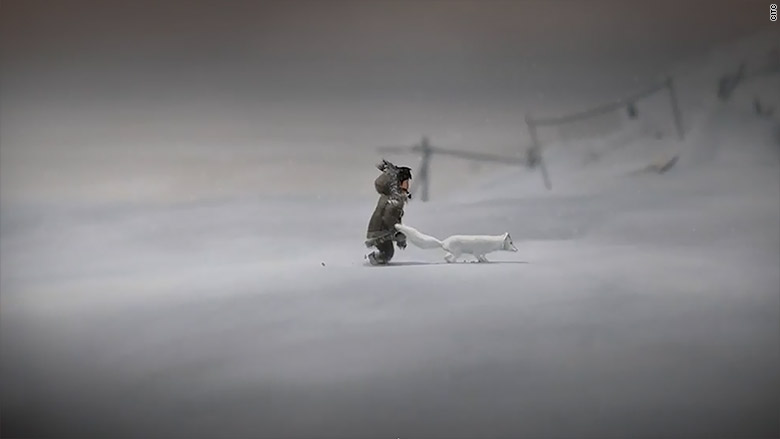
Hope, one of the game's three co-writers, adapted the story and made the central characters a young Inupiat girl and her fox friend. Players are challenged by a series of puzzles and obstacles set in the harsh Arctic landscape.
"It's the first video game based on an indigenous story and built by an indigenous community," said Amy Fredeen, CFO of non-profit Cook Inlet Tribal Council, which provides social, educational and employment services to Alaska Natives and Native Americans.
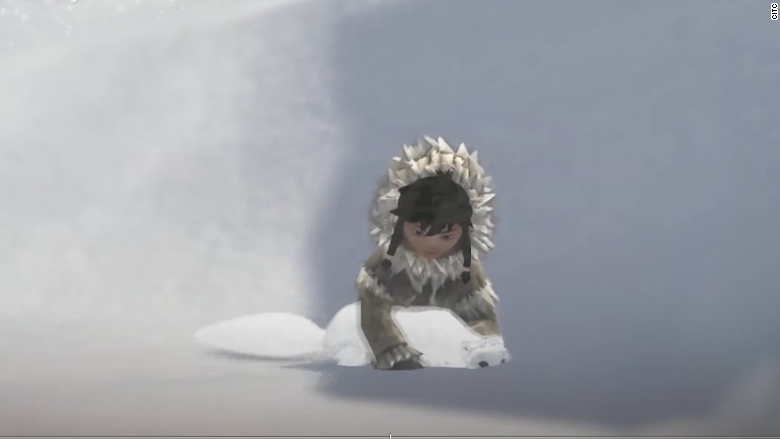
As a teaching tool, it incorporates short videos of the community's elders and storytellers sharing stories about their culture.
The game -- priced at $14.99 -- launched in November 2014, originally for PlayStation 4 and Xbox One. Since then, it's had three million downloads, won numerous industry awards and was recently adapted for iOS and Android devices.
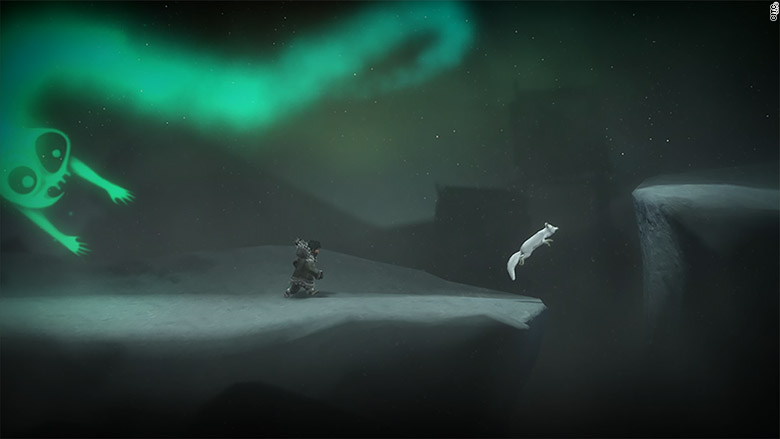
It continues to be used in grade school through college as a teaching tool..
Related: Nintendo's Switch is gaming anywhere
Although the video game is a success, Fredeen said it took her awhile to warm up to the concept.
"Video games can isolate you or connect you with others," she said. "It can go either way."
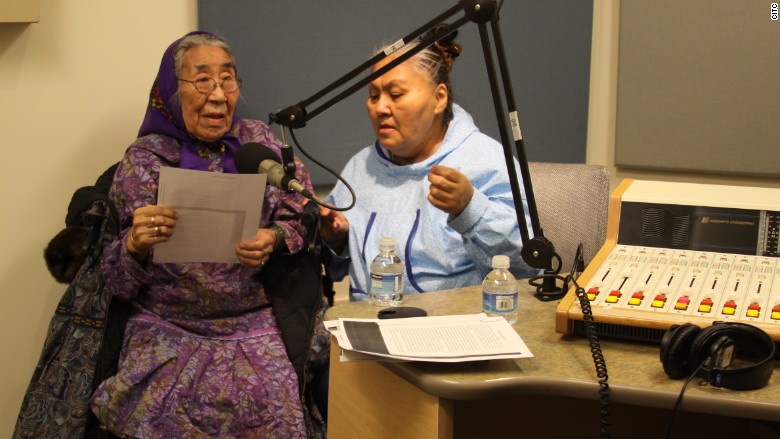
"We [also] did not want to portray our people inappropriately," she added.
But the Council teamed up with E-Line Media, a publisher of educational games, and embarked on a two-year development process. It worked alongside Inupiat elders, storytellers, linguists and kids to get the approach right.
"The entire creation process was a community effort," said Fredeen.
Related: A 'Candy Crush' game show is coming to CBS
Hope also credits the success to the community's readiness to adapt to changing times.
"Never Alone is an amazing testament to our elders who embraced the game because they saw that it could help young people connect to the stories and the culture," said Hope.

